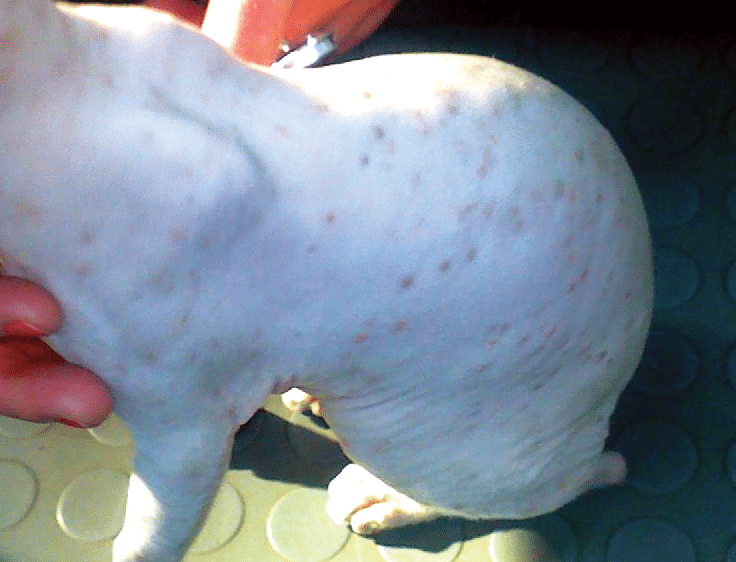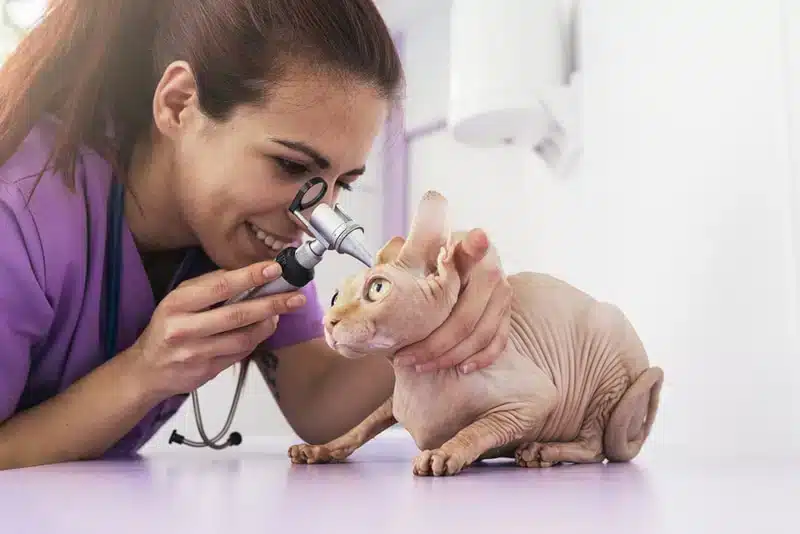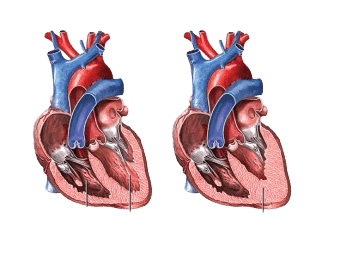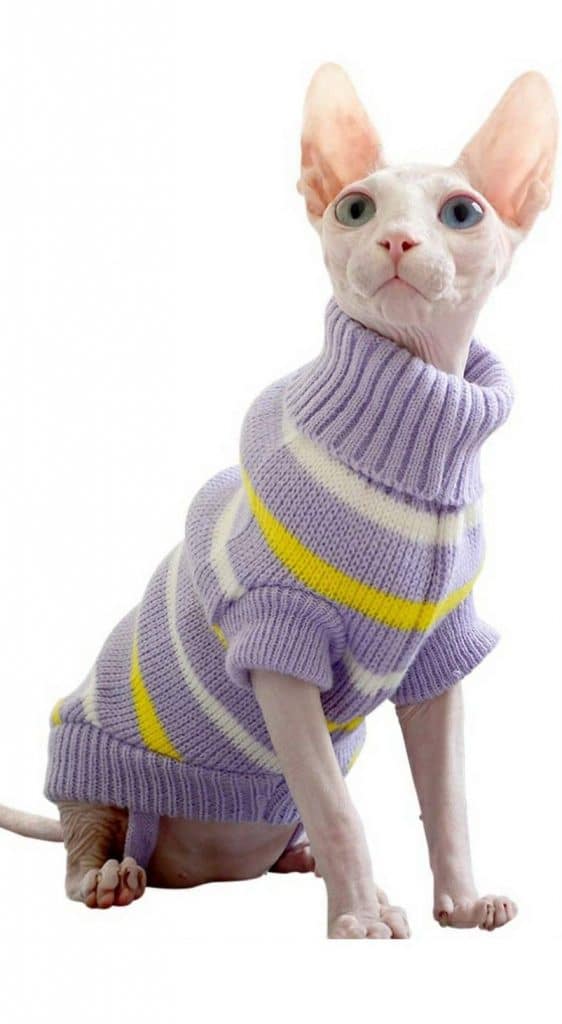Sphynx Cat Health Issues - Health problems in Hairless cats and their care
Sphynx cats, with their distinct hairless appearance, often captivate cat lovers worldwide.
Known for their unique looks and charming personalities, these feline companions make delightful additions to many households.
However, like all breeds, Sphynx cats are not immune to health conditions and issues and require a lot of attention.
This is not a cause for fear as with a proper Sphynx Diet and Vet Care, and attention, your Sphynx will live a long and healthy life with a lot of conditions in check.
Let us consider some Sphynx cat health issues to keep you well-informed and help you ensure the well-being of your beloved pet.
6 Most Common Sphynx Cat Health Problems
1. Skin Problems in Sphynx Cats
Due to the hairless nature of Sphynx cats they lack much of the protection that a fur coat provides.
This exposes them more and makes them prone to skin problems.
One common issue is sunburn, as their delicate skin lacks protection from harmful UV rays.
It’s crucial to provide adequate shelter and limit outdoor exposure, especially during peak sunlight hours, to prevent sunburn in Sphynx cats.
Sphynx cats may also experience acne due to excess oil production, leading to blackheads and inflammation.
Regular cleansing of the skin with a gentle, vet-approved solution can help manage conditions and prevent acne flare-ups in these feline companions.
This means you should make grooming your sphynx kittens a priority.
Urticaria pigmentosa is another Sphynx skin problem, it results in red pigmented spots on the skin.
Sphynx kittens need frequent baths to keep their skin free from excess oils and dirt, which can cause these skin conditions.
Signs Of Skin Problems in your sphynx feline
- Red Spots
- Lesions
- Greasy and Itchy Patches
- Blackheads

2. Ear Infections in Sphynx Cats
Sphynx cats have no hair in their ears to protect them from excessive wax buildup and ear infections.
Clean your cat’s ears regularly with pet-safe wet wipes or a cat-safe ear cleansing solution.
Avoid sticking anything directly in your cat’s ears as this may push dirt or debris farther in.
Wipe only the area outside the canal.
Signs Of Ear Infections
- Smelly Ears
- Yellowish ear discharge
- Swollen ear canal
- Difficulty hearing
- Loss of balance manifested by head tilting.

Photo credits- catster
3. Hypertrophic Cardiomyopathy (HCM)
Hypertrophic cardiomyopathy also known as HCM is a common disease in Sphynx cats that causes the heart muscle to become abnormally thick.
The genetic health of the hairless sphynx or sphynx breed has nothing to do with getting this heart conditions as this is a mutation and such a mutation can occur at anytime.
This causes the cat’s heart to begin to fail over time.
Regular Vet visits should include checking for signs of heart problems since hypertrophic cardiomyopathy can develop over time.
Signs Of Hypertrophic Cardiomyopathy
- Labored breathing
- Acute pain in the hind legs
- Hind leg paralysis
- Fluid buildup in the lungs
- Thromboembolism

4. Sphynx Cat's Poor Temperature Regulation
Sphynx cats are unable to effectively regulate their body temperature This causes them to get chilly easily in cold weather.
It’s important that they have sweaters, heated cat beds, and extra blankets to stay warm.
Likewise, their lack of fur makes them unable to cool their bodies appropriately in hot weather, and they should have access to cool areas to stay comfortable.
They shouldn’t be allowed outside for long periods in either hot or cold weather.
Signs your Sphynx cats are Cold
- Shivering
- Cold to the touch
- Staying close to you or other human companions for warmth
- Avoids walking on any cold surface
- Lethargy

5. Tooth or Periodontal Disease in your Sphynx
Sphynx cats are prone to dental issues, including periodontal disease.
Regular dental cleanings can remove plaque and control infections that cause bad breath, drooling, and red, swollen, or bleeding gums.
Gingivitis is a prelude to Periodontal disease. Gingivitis can be controlled if discovered early, hence the need for regular Vet checks.
Signs of Periodontal Disease
- Bad breath
- Drooling
- Difficulty in eating
- Yellowing teeth
- Swollen and Bleeding gums
6. Hereditary Myopathy
Hereditary myopathy refers to a generalized muscle weakness caused by a defect in the transmission of nerve signals to the muscles.
The disease can progresses to the point that cats can’t walk or exercise because of excessive muscle weakness.
Earliest signs of muscle weakness can be noticeable from three to 24 weeks.
Signs of Hereditary Myopathy
- Exhaustion
- Abnormal gait or walking manner
- Collapse
- Muscle trembling
Are you interested in adopting a Sphynx kitten? Then learn more about our adoption process or see our available kittens.